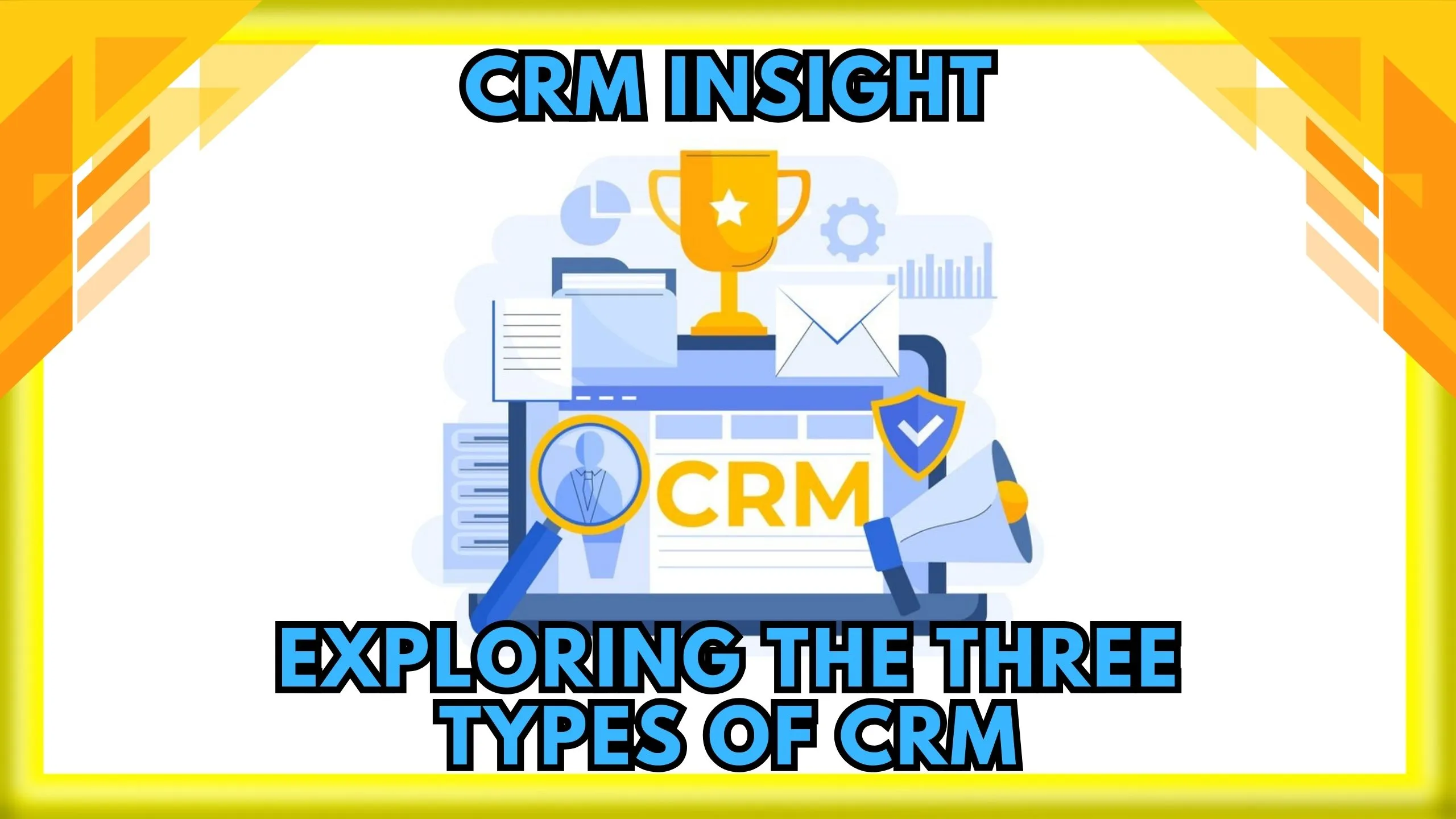CRM Insight: Exploring the Three Types of CRM
- Proposal Software Customer Relationship Management


CRM Insight: Exploring the Three Types of CRM
Customer Relationship Management (CRM) is at the heart of successful business strategies, and understanding the three primary types of CRM systems is crucial for optimizing customer interactions. In this comprehensive exploration, we will delve into Operational CRM, Analytical CRM, and Collaborative CRM, shedding light on their distinctive features and benefits within the business landscape.
1. Operational CRM: Streamlining Customer-Facing Processes
Operational CRM focuses on automating and improving customer-facing processes such as sales, marketing, and service. Platforms like Salesforce exemplify Operational CRM, providing tools that streamline sales pipelines, automate marketing campaigns, and enhance customer service efficiency. These systems empower businesses to create a unified customer database, ensuring seamless interactions across various touchpoints.
2. Analytical CRM: Leveraging Data for Strategic Insights
Analytical CRM revolves around harnessing data to gain strategic insights into customer behavior and preferences. HubSpot is a prime example, offering analytics tools that enable businesses to track and analyze customer interactions. By leveraging data-driven insights, Analytical CRM empowers organizations to make informed decisions, refine marketing strategies, and enhance the overall customer experience.
3. Collaborative CRM: Facilitating Interdepartmental Communication
Collaborative CRM emphasizes interdepartmental communication and collaboration to provide a holistic view of customer interactions. Zendesk exemplifies Collaborative CRM, offering a platform that facilitates seamless communication between sales, marketing, and customer support teams. These systems break down silos, ensuring that all departments are well-informed about customer interactions, leading to a more cohesive and customer-centric approach.
Conclusion
In conclusion, a holistic CRM strategy involves integrating Operational, Analytical, and Collaborative CRM systems to create a comprehensive framework for managing customer relationships. Each type plays a unique role in optimizing different aspects of the customer lifecycle, contributing to a more efficient and customer-focused business operation.
Unlock CRM Excellence with Subscribed.fyi
At Subscribed.fyi, we recognize the pivotal role of CRM in business success. Sign up for free today to unlock exclusive deals on CRM tools and save over $100,000 per year! Manage all your subscriptions effortlessly in one place and make informed decisions about your SaaS tools with our centralized platform.
Relevant Links:








